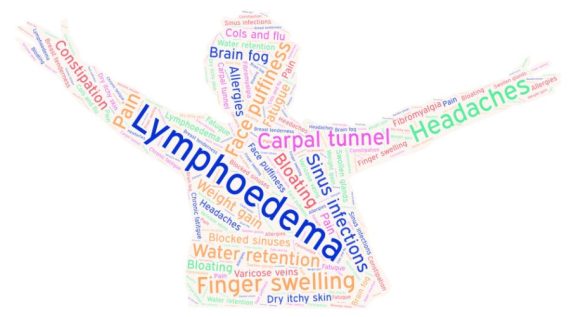
Healthy Social Connection
The Online wine nights, book club or coffee catch ups . . . It’s the new epidemic right now and sounds appealing but is it really giving you what you crave – HEALTHY SOCIAL CONNECTION?
In a time of isolation and fear, we seek what we find comforting but is this online transition giving us false hope and actually creating further isolation and drastic health issues that will affect us for the rest of our lives if not addressed now?
You want to feel connected and get a sense of belonging but the online experience is actually doing the opposite. Maybe your sleep patterns are a little irregular but you put it down to the loss of routine and familiarity. You are starting to accept the new way of life, determined to stay connected online but ignore the headaches, the inability to focus, the eye strain, the dry eyes (that irritating scratchy feeling that just won’t quit). And yet, the drive for social connection (a major component in human behaviour) urges you to stay connected online.
Long term consequences of that online exposure increasing are the disruption of circadian rhythms, blue light toxicity, multi body system failure and acceptance of a new isolated life. Let’s look at these in a little more depth.
Impact of technology on health
The study of circadian rhythms is called chronobiology. Disruption of your circadian rhythms actually affects every system of the body, disrupts your sleep patterns, causes susceptibility to stress related illness and contributes to a gradual health decline that is difficult to reverse.
Circadian rhythms are physical, mental, and behavioural changes that follow a daily cycle. They respond primarily to light and darkness in an organism’s environment. Sleeping at night and being awake during the day is an example of a light-related circadian rhythm. Circadian rhythms are found in most living things, including animals, plants, and many tiny microbes.
They are responsible for alerting and activating your biological clocks. These biological clocks are found in nearly every tissue and organ in your body. In turn, your biological clocks regulate the timing of your circadian rhythms.
Circadian rhythms can influence sleep-wake cycles (lymphatic system and circulatory system), hormone release (endocrine system and reproductive system), eating habits and digestion (digestive system and excretory system), body temperature (endocrine system and immune system), and other important bodily functions such as immunity to illnesses including stealth infections including bacteria, viruses and fungal infections (immune system). Other systems are also affected by altered circadian rhythms including the skeletal system through the poor regulation of vitamin D and minerals, the muscular system by poor uptake of minerals, the integumentary or exocrine system through poor rest quality and mineral uptake, the nervous system by an increase in anxiety and stress and the respiratory system through altered rhythms affecting diaphragmatic breathing. Irregular rhythms have been linked to various chronic health conditions, such as sleep disorders, obesity, diabetes, depression, bipolar disorder, immune weakness and seasonal affective disorder.
Blue light toxicity is a term given to illnesses caused by increasing exposure to computer and phone screens causing a sharp increase in blue light exposure. Devices emit vast amount s of blue light. The body can only cope with small amounts of this and, as a result, we experience vision problems, headaches, migraines, macular degeneration and confusion via the altered information conveyance through the eyes. Virtually all visible blue light passes through the cornea and lens and reaches the retina whereas UV light is blocked by the cornea and the lens of the eye before it reaches the retina.
The Importance of Social Connection for your Health
Accepting our new way of life accelerates the social disconnection rather than decreasing it. Online based communication is no replacement for social communication. It can increase a feeling of disconnection and loneliness. This causes an increase in inflammation, depression and a reduction in cognition.
With virtual clubs and catch ups replacing true social connection, no longer can your body’s organs communicate with those of the people you would normally see in person. We are now learning more about how the body’s organs seek close contact with other people’s organs to lift their vibration, their healing and frequencies.
“If someone with an ailing thyroid, for example, (such as is the case with Hashimoto’s thyroiditis, hypothyroidism, hyperthyroidism, and more) stands next to someone with a better-functioning thyroid, the two thyroids will communicate with each other through their radio-like frequencies, with the ailing thyroid sending out a request for help. When the healthier thyroid detects this signal, it will first send a preliminary message to prime the compromised thyroid to receive aid. Once the thyroid in need has prepared itself, the helper thyroid will send a frequency that improves the ability of the other thyroid’s personalised immune system (the lymphocytes in that area) to protect the gland and also assists the thyroid in receiving the lymphocytes’ help, at the same time strengthening the thyroid itself.” https://www.medicalmedium.com/blog/two-thyroids-are-better
Many organs of the body communicate with those of other people. The heart, the liver and the stomach all do this. Have you ever felt ’comfortable’ around someone instantly? That is the organs of your body communicating on a high and healthy frequency. On the flipside, maybe meeting someone has the hairs on the back of your neck stand up- that is your body’s organs sounding an alarm. The frequency is too low and the body has deemed it harmful.
At Wholistic Natural Health, we understand the importance of social connection for health. Our team are in constant contact with our community and offer ongoing support via messaging, calls and in-person treatments(while following increased hygiene practices). We see the value in true social connection, in community involvement and in continuing healthy practices. We are increasingly concerned that the online wine, book and coffee clubs, catch ups and isolation are leading to a future decline in health beyond the current climate.



